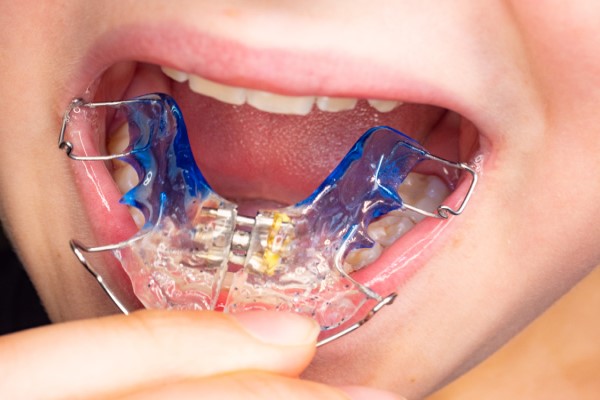Dental problems such as teeth crowding, overbite, crossbite, and underbite are common due to a narrow jaw bone. Orthodontics treatments involving mouth devices such as expanders in Roslyn have been used to fix the above conditions among children. While palatal expanders are commonly used in pre-teens, they may also be an option for adults to replace upper jaw surgery. If you consider an expander for your child or yourself, you probably have multiple concerns, including whether treatment is painful and the period one needs to have the devices. The following information sheds more light on palate expanders.
What dental conditions can be corrected with expanders?
Cross-bite
A crossbite is a type of dental malocclusion that presents itself when your upper jaw is narrower than the lower jaw. The result is the top teeth at the back of your mouth sitting inside the lower teeth. Crossbites are common in children who sucked their thumb a lot or took long before extracting milk teeth. If left unresolved, crossbites can result in pain, tooth decay, and disorders such as sleep apnea. The good news is that expanders can widen your upper jaw, creating room for your teeth and fixing the crossbite.
Crowding
When there’s limited room in the mouth, a child’s permanent teeth can erupt in the wrong position. Fortunately, orthodontics can tell whether your child has enough space or not earlier before their permanent teeth erupt. The specialist may recommend an expander to avoid teeth from crowding and overlapping each other. Using a palatal expander, an orthodontist creates room for the incoming teeth by widening the upper jaw.
Impacted teeth
An impacted tooth does not emerge from the gum primarily because of inadequate room. Although this can affect any teeth in your mouth, impacted teeth are common in the last adult teeth (wisdom teeth). These are four molars at the back of the mouth, with two situated on top and the other two at the bottom. While impacted teeth may not result in immediate problems, they are usually hard to clean and susceptible to decay and gum disease. Oral surgeons recommend removing impacted teeth to avoid future damage to other teeth and cysts.
How long should I have expanders?
The length period for which you need to have your extenders depends on different factors, such as age and the severity of the dental problem. The jaw is not fully developed until after puberty, and for this reason, expanders are more effective in children than teens and adults. Since a child’s jaw has not wholly solidified, it can more quickly expand than the fully grown and stiff one. It may take as little as 2 to 3 months for the expanders to widen the jaw in children. However, older individuals may take up to a year or even longer before achieving the desired results. Sometimes a typical expander may not be effective, and a surgically inserted palate expander may be an option.
If you have further questions about expanders or you need to get one, book a session with your specialist today at Advanced Digital Orthodontics.










